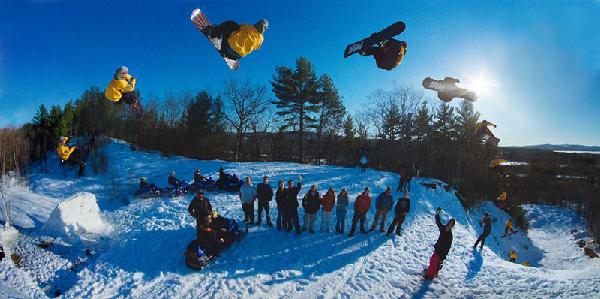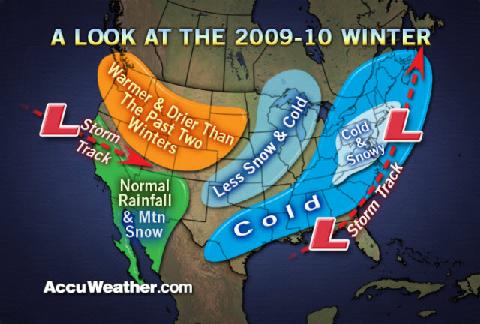Wavepacket Blog displaying only one specific post |
| 2009 | |
| October | |
| Mon Oct 12 21:10:41 2009 The 2009-2010 Winter Forecast |
|
| >> links >> | |
| Mon Oct 12 21:10:41 2009 The 2009-2010 Winter Forecast How much snow will be in the Cascades this winter? |
|||||||||||||||||||||||||||||||||
| Should I buy a season pass to
Mt Baker this year?
Actually, I probably will. I haven't the past two years, and in each year it was almost worth buying one. I figure if I get a season's pass, I'll go a few more times, and then it will have paid for itself. But the bigger question is: is it stupid to buy a season's pass this year? After all, it is an El Nino winter, which typically means warmer, drier weather in the Pacific Northwest. And that means less snow. So for once, I decided to really research the 2009-2010 winter forecasts. What do the experts predict? Greg Simmon's forecast is dire: "a warmer and somewhat dry weather pattern is expected from the Pacific Northwest..." And he adds:
Well, shoot! I mean, I love hydro sources as much as the next guy, but we need snow! Then, Accuweather released a map of the expected precipitation (at left). Not good! The best resource is probably the National Weather Service, which has very detailed forecast temperature and precipitation maps for each month. The bottom line? We're screwed. Everyone predicts a dry winter. It might get better in April! So look for great spring skiing. Well, that's the prediction. How have they done the past few years? Here's the table I compiled. Mt Baker's average annual snowfall is 647 inches, according to their website. I figured a season was average if it was 600-700 inches of snowfall (which is a lot of snow, by the way...). Of course, as the Mt Baker ski area loves to tell you, they had the world record snowfall of 1140 inches in the 1998-1999 winter. That was the winter I learned to snowboard (not at Mt Baker, sadly), and I have to say: there was a crazy amount of snow that year.
So what does that say? It says that NOAA gets it right more often than a random guess (44% instead of 33%). But more scarily, the past two El Nino winters have been very dry. So, based on that, I'd guess this will be a very poor year, with less than 450 inches of snow! I say that because it has been incredibly dry so far this summer and fall. However, last year there was "only" 548 inches of snow, and I thought it was great. And hey: maybe this means that, during the 2009-2010 Winter Season at Mt Baker, every day will be like spring skiing! Comments |
Related: economics environment predictions Unrelated: books energy geopolitics lists mathematics science |
||||||||||||||||||||||||||||||||
| Links: |  |
Blog Directory | Blog Blog | Technorati Profile | Strange Attractor |

